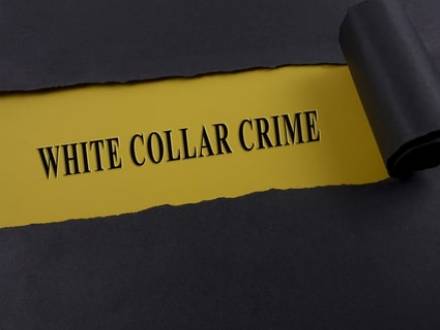What Factors Influence Sentencing for White-Collar Crimes?
 If you are facing sentencing for a white-collar crime, you are likely highly apprehensive. After all, the sentence you receive can affect your life for many years. Some white-collar crimes like fraud or embezzlement that involve large sums of money may trigger a federal mandatory minimum sentence based on the amount of money involved. Mandatory minimums may also be applicable if this is not your first conviction for a white-collar crime.
If you are facing sentencing for a white-collar crime, you are likely highly apprehensive. After all, the sentence you receive can affect your life for many years. Some white-collar crimes like fraud or embezzlement that involve large sums of money may trigger a federal mandatory minimum sentence based on the amount of money involved. Mandatory minimums may also be applicable if this is not your first conviction for a white-collar crime.
For many other white-collar federal convictions, sentencing can be altered by a number of factors. Having a knowledgeable Dallas, TX white-collar crime attorney by your side who has a thorough understanding of sentencing factors can significantly lessen your potential penalties. Your attorney will know how to present these factors in the best light possible, helping you get your life and your future back on track.
What Are White-Collar Crimes?
White-collar crimes are usually nonviolent in nature and involve concealment or deceit to gain a personal or business advantage or money. Examples include money laundering, securities fraud, embezzlement, corporate fraud, Ponzi schemes, tax evasion, health care fraud, mortgage fraud, cybercrime, bank fraud, racketeering, and more. The SEC, the FBI, and the Financial Industry Regulatory Authority (FINRA), along with state authorities investigate white-collar crime. One of the most high-profile examples of white-collar crime in recent history is the Madoff Ponzi scheme that robbed approximately 37,000 victims of billions of dollars.
White-Collar Crime Sentencing Factors
While the White-Collar Crime Penalty Enhancement Act of 2002 amended the Federal criminal code to increase penalties for mail and wire fraud and conspiracy to commit an offense against or defraud the United States, there is still "wiggle room" during sentencing for many white-collar crimes. Sentencing factors include:
- The criminal history of a defendant is one of the most significant factors when determining sentencing for a white-collar crime—or for any criminal offense. A prior record of a similar white-collar crime conviction is likely to result in enhanced penalties. If this is the defendant’s first offense and the court believes they are remorseful and committed to rehabilitation, the sentence is likely to be less severe.
- The extent to which the defendant cooperates with law enforcement goes a long way towards a more lenient sentence, especially when they provide valuable information that aids in the arrest of a person higher up the criminal food chain.
- If a defendant is ordered to provide restitution to their victims and does not do so, sentencing is likely to be harsher.
- How the defendant’s community was affected by the white-collar crime committed. If the crime caused economic instability or eroded the public trust, or if the case was very high-profile, the defendant is likely to be given a harsher sentence.
- The role the defendant played in the offense, along with whether others played a more significant role in the crime, will influence sentencing.
- If there were multiple defendants in the case, there may also be cooperating co-conspirators and plea bargains to take into consideration. A defendant willing to testify against others could receive a reduced sentence, or a plea bargain could result in lesser charges and reduced penalties.
- Mitigating factors that will be considered when sentencing include the defendant’s mental health status, efforts toward rehabilitation, involvement in community service, and age. A defendant’s personal and professional accomplishments and contributions to society could be highlighted to humanize the defendant. An attorney will present these factors to secure a more lenient sentence.
- If the defendant is older, is in poor health, or is responsible for other family members, the court might consider alternatives to incarceration, including fines, house arrest, community service, or probation. Rehabilitation programs could also be considered to address the cause of the criminal behavior and reduce sentencing penalties.
Contact a Dallas, TX White-Collar Crime Lawyer
Your Dallas, TX white-collar crime lawyer will play a significant role during sentencing. It is crucial that you consult with an experienced attorney from Spencer & Associates who is skilled in navigating the complexities of the federal legal system. Our firm has successfully handled high-profile white-collar criminal cases and has significant experience recovering seized assets. To schedule your free consultation, contact Spencer & Associates today at 214-385-8500 to discuss your white-collar charges and receive the legal guidance you need.




